2013 Women's Institute for Summer Enrichment
PROGRAM OVERVIEW
WISE is a one-week residential summer program at a TRUST campus that brings together graduate students, post-doctoral fellows, and professors from all disciplines that are interested in Ubiquitous Secure Technology and the social, political, and economical ramifications that are associated with this technology. Thought leaders from academia, industry, and government come to WISE to teach power courses in several disciplines, including computer science, engineering, economics, law, and public policy. The one-week program includes rigorous classes and allows participants opportunities for career development and to network with their peers.
The 2013 WISE Institute was held June 23-28, 2013 on the San Jose State University Campus. A copy of the agenda can be found here.
SPEAKERS 2013
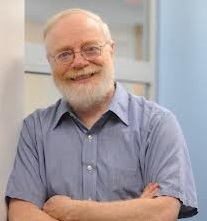
Steven Bellovin
Columbia University/Federal Trade Commission
Cybersecurity Research Challenges
Steven M. Bellovin is currently serving as Chief Technologist of the Federal Trade Commission; he is on leave from his job as professor of computer science at Columbia University, where he does research on networks, security, and especially why the two don't get along. He joined the faculty in 2005 after many years at Bell Labs and AT&T Labs Research, where he was an AT&T Fellow. He received a BA degree from Columbia University, and an MS and PhD in Computer Science from the University of North Carolina at Chapel Hill. While a graduate student, he helped create Netnews; for this, he and the other perpetrators were given the 1995 Usenix Lifetime Achievement Award (The Flame). He is a member of the National Academy of Engineering and is serving on the Computer Science and Telecommunications Board of the National Academies, the Department of Homeland Security's Science and Technology Advisory Committee, and the Technical Guidelines Development Committee of the Election Assistance Commission; he has also received the 2007 NIST/NSA National Computer Systems Security Award. Bellovin is the co-author of Firewalls and Internet Security: Repelling the Wily Hacker, and holds a number of patents on cryptographic and network protocols. He has served on many National Research Council study committees, including those on information systems trustworthiness, the privacy implications of authentication technologies, and cybersecurity research needs; he was also a member of the information technology subcommittee of an NRC study group on science versus terrorism. He was a member of the Internet Architecture Board from 1996-2002; he was co-director of the Security Area of the IETF from 2002 through 2004.
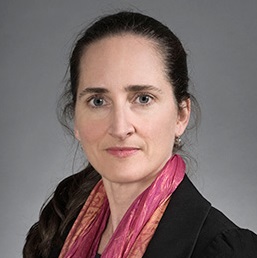
Linda Bushnell
University of Washington
Leader Selection for Performance and Control of Complex Networks
Linda Bushnell is a Research Associate Professor at the University of Washington. She received her Ph.D. in EE and MA in Math from UC Berkeley in 1994 and 1989, and her MS and BS in EE from UConn in 1987 and 1985. Her research interests include networked control systems, leader-follower systems, and secure-control. She received a best paper award from WiOpt 2012. She is the author/co-author of 15 journal papers and 56 conference papers. She is a recipient of the US Government Superior Civilian Service Award, NSF ADVANCE Fellowship, and IEEE CSS Recognition Award. She is a Senior Member of the IEEE. For CSS, she is an Advisor to the Women in Control Committee, a member of the TC Control Education, and Liaison to the IEEE Women in Engineering. She was the Secretary-Administrator, Member of the Executive Committee, Member of the Board of Governors, Associate Editor of the IEEE CSM, Vice-Chair for Invited Sessions for 2001 CCA, Chair of the History Standing Committee, and Vice-Chair for Invited Sessions for 2000 CDC. For AACC, she is currently the Workshop Chair for 2013 ACC and member of the TC on Control Education. She was the Technical Program Chair for 2007 ACC, Publicity Chair for 2005 ACC, Vice-Chair for Publications for 1999 ACC, and Vice-Chair for Invited Sessions for 1998 ACC. For ACM, she was the Technical Program Chair for the Conference on High Confidence Networked Systems (HiCoNS) at CPSWeek 2013.
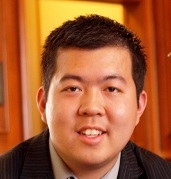
Ellick Chan
Stanford University
Understanding the Challenges with Medical Data Segmentation
Ellick Chan is currently a Postdoctoral Scholar studying healthcare security and privacy at Stanford University. He graduated from the University of Illinois at Urbana-Champaign with a joint degree Ph.D. and MBA while working under the supervision of Professor Roy H. Campbell. His research spans techniques to perform high-fidelity live forensics on systems. He has presented the results of his research at several influential conferences. His work on hardware supported malware received the best student paper award at the prestigious IEEE Symposium on Security and Privacy held at Oakland in 2008.
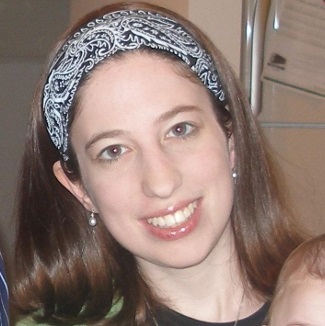
Dana Dachman-Soled
Microsoft Research New England
Minimal Assumptions for Cryptographic Tasks and Provable Security in Realistic Models
Dana Dachman-Soled is currently a postdoc at Microsoft Research New England. Before that, she completed her PhD in Computer Science at Columbia University, where she was a recipient of the FF SEAS Presidential Fellowship. Dana's main research interests are in cryptography and security. She is also interested in computational learning theory and property testing of Boolean functions.

Armando Fox
University of California, Berkeley
Bigger is Better? Using MOOC Technology in a Software Engineering Course
Armando Fox is an Adjunct Associate Professor at UC Berkeley and a co-founder of the Berkeley RAD Lab. Prior to that he was an Assistant Professor of Computer Science at Stanford, and received his PhD, MS and BS degrees at Berkeley, Illinois at MIT respectively. His current research interests include applied statistical machine learning and cloud computing; he is a co-author of the recently released position paper “Above the Clouds: A Berkeley View of Cloud Computing” and has frequently lectured on this topic. He has published several papers in collaboration with top machine learning researchers on the application of machine learning to diagnosing, characterizing and identifying operational problems in datacenter-scale and cloud computing installations. His 2003 collaboration with David Patterson on Recovery-Oriented Computing earned him the distinction of being included in the “Scientific American 50″ top researchers. In previous lives he helped design the Intel Pentium Pro microprocessor and founded a company to commercialize his UC Berkeley dissertation research on mobile computing.

Sherif Halawa
Stanford University
Sherif Halawa is a PhD student in the Image, Video, and Multimedia Systems (IVMS) research group at Stanford University. His research is under the supervision of Professor Bernd Girod. As part of the Interactive Region-of-Interest (IROI) team, which is part of IVMS's Video Coding sub-group His current research focus is ClassX project, which is a novel lecture streaming system that aims at providing enhanced student and instructor experience at lower setup and running cost.

Raquel Hill
Indiana University
Evaluating the Utility of a Differentially Private Social Science Dataset (Slides contain proprietary information-please contact the speaker with questions)
Raquel Hill is an Associate Professor of Computer Science in the School of Informatics and Computing. Her primary research interests are in the areas of trust and security of distributed computing environments and data privacy with a specific interest in privacy protection mechanisms for medical-related social science datasets. Dr. Hill’s research is funded by various sources, including the National Science Foundation. She holds B.S. and M.S. degrees in Computer Science from the Georgia Institute of Technology and a Ph.D. in Computer Science from Harvard University. Prior to joining the School of Informatics and Computing, Dr. Hill was a Post Doctoral Research Associate at the University of Illinois Urbana-Champaign, with a joint appointment with the Department of Computer Science and the National Center for Super Computing Applications (NCSA).

Ann-Marie Horcher
Nova Southeastern University
View from the Inside - The experience of a Novice on a Conference Committee
Ann-Marie Horcher is a doctoral candidate at Nova Southeastern University in Fort Lauderdale, Fl. Her research interests include usable security for mobile devices, and assistive technology for the elderly and learning disabled. She has been using mobile system since she could drag a suitcase-sized Osborne with its acoustic coupler from place to place behind her. She believes that technology must be usable to be useful, and security is no exception. She also feels technology should fit the user, instead of the current state. Previous to her PhD she worked at a large chemical company as an information architect, worked on international projects and implemented major systems such as SAP to run the business.

Sheila Humphreys
University of California, Berkeley
Sheila Humphreys is the Director of Diversity in the Department of Electrical Engineering and Computer Sciences at the University of California, Berkeley, has been actively engaged in creating mentoring and intervention programs to promote diversity at the pre-college, undergraduate and graduate levels for thirty-five years. As Director of Diversity for the EECS Department, she oversees recruitment, retention and academic and preprofessional support for women and underrepresented students. Humphreys has made numerous presentations and has authored articles about mentoring and access to science and engineering. Humphreys received the A. Nico Habermann Award from the Computer Research Association in 1999 and under her leadership, the EECS women’s program was awarded the 2002 Women in Engineering Program Award by WEPAN.

Peifung E. Lam
Stanford University
Understanding the Challenges with Medical Data Segmentation
Peifung Eric Lam is a Ph.D. candidate in the Computer Science Department of Stanford University, and his advisor is Professor John C Mitchell. He is a member of the Stanford security lab, and his research interests include formalization and analysis of web security protocols, formalization of privacy laws and policies, and mechanisms to protect patient privacy in healthcare organizations.
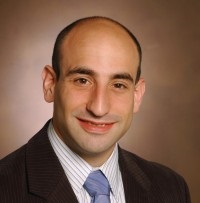
Bradley Malin
Vanderbilt University
How to De-identify a DNA Database… And Keep it That Way (Slides contain proprietary information-please contact the speaker with questions)
Bradley Malin is is the Vice Chair for Research and an Associate Professor of Biomedical Informatics in the School of Medicine at Vanderbilt University. He is also an Associate Professor of Computer Science in the School of Engineering and is Affiliated Faculty in the Center for Biomedical Ethics and Society. His research focus is Biomedical informatics, databases, data mining, data privacy, information retrieval, network analysis, technology and policy. He is the founder and current director of the Health Information Privacy Laboratory (HIPLab), an interdisciplinary endeavor that was established to address the growing need for data privacy research and development for the rapidly expanding health information technology sector. The HIPLab is funded through various grants from the National Science Foundation and National Institutes of Health to construct technologies that enable privacy in the context of real world organizational, political, and health information architectures. The HIPLab draws upon methodologies in computer science, biomedical science, and public policy. In addition, the HIPLab has functioned as a data privacy consultation service for the Electronic Medical Records and Genomics (eMERGE) network, a consortium sponsored by the National Human Genome Research Institute and National Institute of General Medical Sciences. Dr. Malin scientific articles on data privacy, fraud detection, and surveillance within various technologies, including text databases, biomedical databases, and face recognition systems. His research on the re-identification and privacy protection of patient-specific genomic database records has received several awards from the American Medical Informatics Association and International Medical Informatics Association. Brad holds a bachelor¹s in molecular biology, a master¹s in public policy and management, a master¹s in computer science ("data mining and knowledge discovery"), and a doctorate in computer science ("computation, organizations, and society") from Carnegie Mellon University. Prior to joining Vanderbilt, he was a graduate researcher in the Data Privacy Laboratory at Carnegie Mellon University.

Sabrina Soracco
University of California, Berkeley
Sabrina Soracco is Director of the Academic Services unit in the Graduate Division at the University of California, Berkeley. In this position, she teaches academic writing courses for graduate students and assists graduate students in the development of academic skills necessary for the successful completion of their doctoral programs such as academic writing, grant writing, dissertation writing, editing, and preparing articles for publication. She is also Co-Director, with Linda von Hoene, of Berkeley’s Summer Institute for Preparing Future Faculty. From 1991 to 2003, she was head of Berkeley’s Grant Proposal Advising and Outreach Program for graduate students. In this capacity she conducted campuswide and discipline-specific workshops and presentations on locating funding sources and on grant writing and provided one-on-one consultations for graduate students applying for university and extramural grants and fellowships (e.g., Fulbright, National Science Foundation, Social Science Research Council, National Endowment for the Humanities). Her undergraduate and graduate degrees are from UC Berkeley: she holds a B.A. in Linguistics, an M.A. in Scandinavian Languages and Literatures with an emphasis on medieval Icelandic literature, and is currently completing her dissertation entitled "Female Identification and Male Melancholia: Shifting Constructions of Gender in Strindberg’s Naturalist and Expressionist Works."

Galina Schwartz
University of California, Berkeley
Cyber-Physical Risks
Galina Schwartz serves as Chief Economist for the FORCES Project. She is affiliated with the Department of Electrical Engineering and Computer Sciences at the University of California, Berkeley, and also engaged with Network Economics Group and TRUST Center. Dr. Schwartz's primary expertise is game theory and microeconomics. She investigates the robustness of cyber-physical systems (CPS) by integrating the resilient control and game theory to account for economic incentives. She studies the resilience of large-scale CPS which directly interface with humans (such as energy, transportation, and communications infrastructures), with the emphasis on survivability in uncertain and adversarial conditions. She develops the tools for benchmarking security risks to cyber-physical systems, and is interested in game theoretic analysis of interactions between humans and smart machines. Dr. Schwartz authored papers in numerous economic and engineering journals. Recently she published on the subjects of smart grid privacy and security; probabilistic demand response mechanisms for smart networked infrastructures; network neutrality; residual cyber risks management; and obstacles to growth of informative cyber-insurance markets. In her earlier research, she addressed corporate governance and incentive effects of regulations. She applied contract theory to study ownership structures and contractual costs of multinational corporations, and analyzed the role of bureaucracies in environments with high transaction costs, focusing on connotations for economic development. Dr. Schwartz has been on the faculty in the Ross School of Business at the University of Michigan, Ann-Arbor, and has taught at Economics Departments at the University of California, Davis and Berkeley. Dr. Schwartz received her MS in mathematical physics from Moscow Institute of Engineering Physics (Russia), and Ph.D. in economics from Princeton University in 2000.
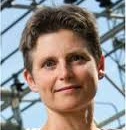
Alexandra von Meier
California Institute for Energy and Environment
Information Technology in the Electric Grid: Challenges and Opportunities
Alexandra “Sascha” von Meier is Co-Director for Electric Grid Research at the California Institute for Energy and Environment, and Adjunct Associate Professor in the Department of Electrical Engineering and Computer Science at UC Berkeley. She currently studies technical and operational issues related to the integration of high levels of renewable resources in “smart grids,” particulary through through advanced instrumentation of power distribution circuits that increases their visibility to operators. Her past research has addressed engineering and cultural dimensions of energy technology, including electric power distribution, grid-connected photovoltaics, electric demand response, nuclear power plant operation, nuclear materials management, and green building performance. Her textbook, Electric Power Systems: A Conceptual Introduction (Wiley-IEEE, 2006), has been used in university courses and industry to help explain the complexities of operating the electric grid. An award-winning educator, she regularly presents tutorials on electric power delivery to academic and professional audiences. Sascha received her Ph.D. in energy and resources (1995) and her B.A. in physics (1986) from the University of California, Berkeley. Away from the office, she enjoys cycling, rock climbing and the mountains whenever possible.



